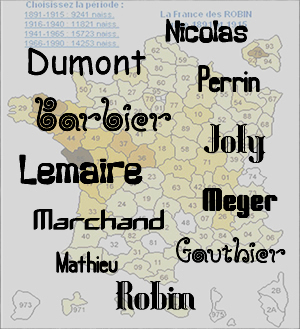Ever wondered how a simple string of letters holds the key to centuries of history, culture, and identity? Let’s unravel the puzzle of “Apellidos Franceses.” To clarify, “Apellidos Franceses” doesn’t refer to an elusive person hiding in some dusty records—it’s the elegant and age-old term for French surnames. A surname is not just a linguistic tag but a living testament to one’s heritage, and in France, it’s a nuanced tapestry revealing geographical roots, occupations, and even physical traits. In short, it’s much more than a name on your mailbox.
Origins of French Surnames
For starters, let’s take a jaunt through history. French surnames evolved over centuries, sculpted by invasions, cultures, and languages that spilled into France. After all, when you’ve had the Romans, Franks, and a millennium of regional dialects influencing your lexicon, you’re bound to create some fascinating appellations. Geographical markers often played a role; think of family names that shout out your hometown, like “Paris” or “Bretagne.” Crafty professions carved another niche within surnames; take Lefebvre, which signals a craftsman, or rather specifically, a blacksmith. Physical characteristics weren’t shy either—with names like Leblanc clinching the award for “Person Most Likely to Have Blonde Hair.” The variety and richness offer an almost archaeological insight into the lives and times of our medieval ancestors.
Common French Surnames
Craving examples? Names like Dubois, Lefebvre, Moreau, and Leroy dominate the French landscape like baguettes at a bakery. Why are these so prevalent? Blame history! For generations, common experiences and shared environments led people to end up with similar surnames. A “Lefebvre” in Paris could easily be related to one in Lyon under a different light—both would have likely swung a hammer in their time. In the colorful strata of French society, these names became household icons, lending an ear to the storytellers of everyday life.
Regional Variations
But there’s a catch—French surnames aren’t monolithic. Across different regions, distinct cultural twists have birthed a plethora of variations. Take Basque-French surnames in Iparralde—these often feature unique spellings and blend multitudes of linguistic influences. And just when you think you’ve got it all figured out, the “dit” particle stops you in your tracks. A family might adopt “dit” to differentiate branches—essentially saying, “We’re all Dubois, but we’re that Dubois.” These nuances lend each name a host of personal stories and regional quirks, raising genealogical interests and eyebrows alike.
Evolution and Adaptation
As days turned into decades and then into centuries, French surnames didn’t just sit prettily in their medieval forms. They adapted, grew, and sometimes shrank to suit new cultural tapestries. Think of it as a genteel game of linguistic hopscotch—names transformed with the eras, sometimes innovating by a letter or two, other times adopting forms from neighboring ethnic groups. The evolution was especially pronounced when picturesque fountain pen signatures gave way to streamlined keystrokes. This metamorphosis was driven by a mélange of reasons such as migrations and the inevitable tide of modernization.
Distribution and Popularity
At large, French surnames have jumped borders, tickling ears from Quebec to Madagascar. Globalization did a number on these names, thrusting them onto international stages and bringing their popularity to new heights. Surnames like Martin or Durand have become familiar world over, inspired by French influence across oceans. Some were buoyed by historical events, others by the sheer will to migrate. This dispersion has led to a remarkable cultural and linguistic tapestry that underscores identity even while transcending borders.
Study and Analysis of French Surnames
Fancy some detective work? Genealogical research of French surnames is a burgeoning science, offering data-backed insights into history through an alphabetical lens. Methods range from the tactile romances of library digests to the digital wizardry of online databases. The goal? To track surname evolution and map out their spread with pinpoint accuracy. Genealogists—and those they enlighten—are forever chasing the story within the name, illuminating the complexity of human migration, settlement patterns, and cultural integration. These efforts underscore the importance of understanding surnames as more than mere labels—they are keys to unlocking the past.
Conclusion
In summary, French surnames provide a fascinating entrée into a world of history, culture, and identity. They act as threads weaving personal and collective stories across time and space. Understanding these names does more than quench our curiosity; it enriches our comprehension of the ties that bind us across centuries. In the wide-ranging study of French surnames, much can be learned about the deep-seated roots and wings that uplift whole communities. For those interested in more than just names on paper—and who doesn’t love a good detective story?—explore further and discover your connection to the grand mosaic of history. Who knows, a deeper dive into surnames may just offer the key to understanding more about ourselves.
Want to delve deeper into genealogy tools? Check out this resource for more insights.

